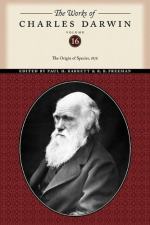I believe, as was remarked in the last chapter, in no law of necessary development. As the variability of each species is an independent property, and will be taken advantage of by natural selection, only so far as it profits the individual in its complex struggle for life, so the degree of modification in different species will be no uniform quantity. If, for instance, a number of species, which stand in direct competition with each other, migrate in a body into a new and afterwards isolated country, they will be little liable to modification; for neither migration nor isolation in themselves can do anything. These principles come into play only by bringing organisms into new relations with each other, and in a lesser degree with the surrounding physical conditions. As we have seen in the last chapter that some forms have retained nearly the same character from an enormously remote geological period, so certain species have migrated over vast spaces, and have not become greatly modified.
On these views, it is obvious, that the several species of the same genus, though inhabiting the most distant quarters of the world, must originally have proceeded from the same source, as they have descended from the same progenitor. In the case of those species, which have undergone during whole geological periods but little modification, there is not much difficulty in believing that they may have migrated from the same region; for during the vast geographical and climatal changes which will have supervened since ancient times, almost any amount of migration is possible. But in many other cases, in which we have reason to believe that the species of a genus have been produced within comparatively recent times, there is great difficulty on this head. It is also obvious that the individuals of the same species, though now inhabiting distant and isolated regions, must have proceeded from one spot, where their parents were first produced: for, as explained in the last chapter, it is incredible that individuals identically the same should ever have been produced through natural selection from parents specifically distinct.




